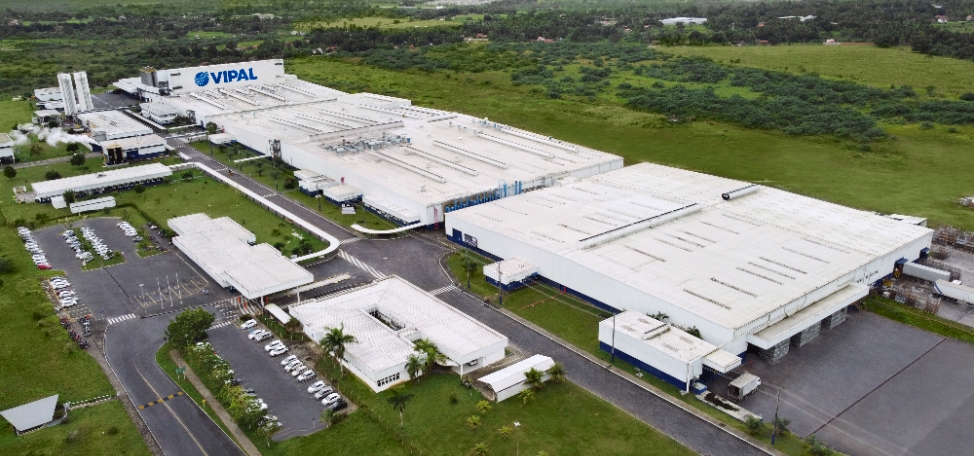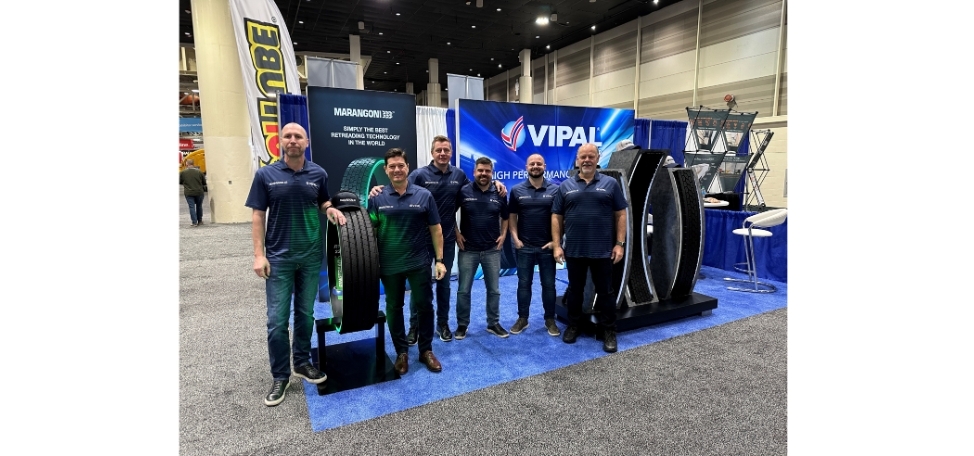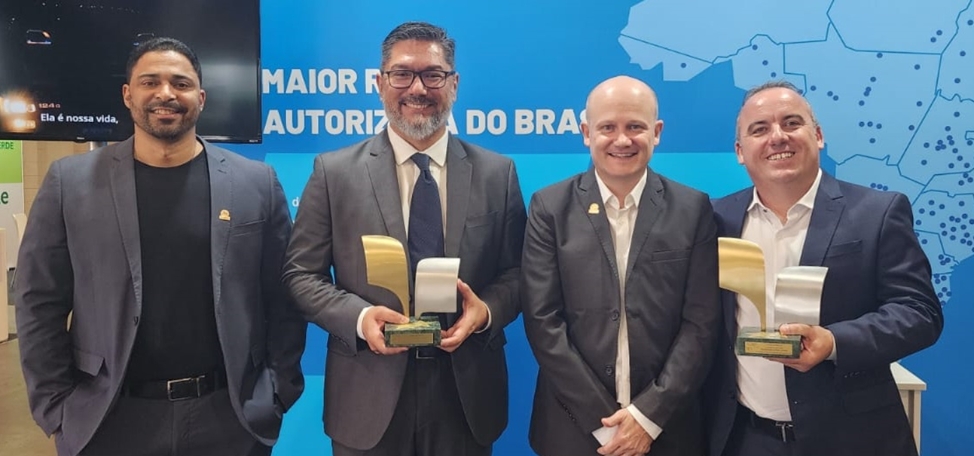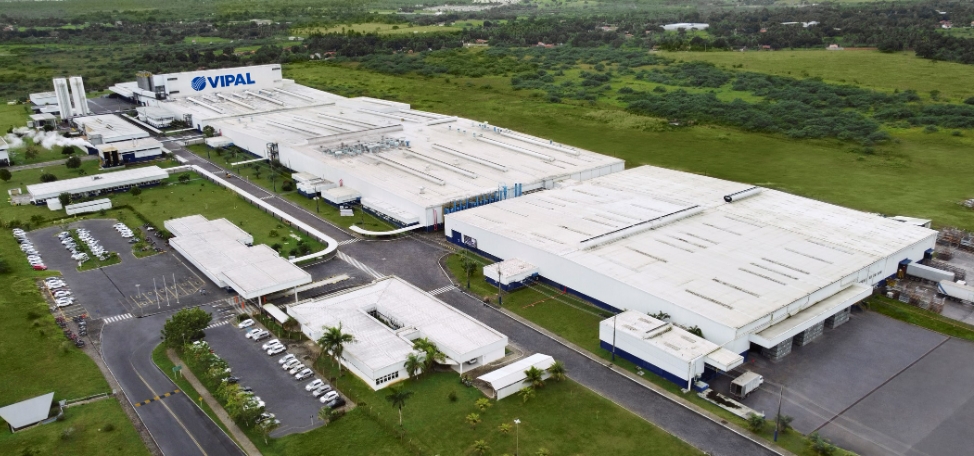It was at a gas station in 1960 that Vicencio Paludo found the opportunity that would make him start the company that is now fifty years old, Vipal Rubber. The only one in the world with a complete line of products for retreading and repairing of passenger, commercial, agricultural and Off the Road (OTR) Tires, the company was born from a latent need: to offer the trucking industry a solution to their tire problems. From the first patches, going through the production of camelbacks, precured treads, and tire retreading machines, to the manufacture of new tires for motorcycles, one of the largest rubber manufacturers in the world emerges.
Arlindo Paludo, the 76-year-old son of the founder and the current Chairman of the Board of Directors for Vipal Rubber, is deeply moved when recalling the company's humble beginnings. Officially started in 1973, it has grown to become a global leader in its industry.
"We were born with the goal of staying close to our customers and partners, providing companies the best solutions to drive savings and high performance through tire retreading. Our growth stems from a relentless pursuit of continuous innovation, genuine teamwork, and unwavering determination," he adds.
In 1992, Vipal Rubber established a unit in the United States, which is the world's largest tire retread market. The initial operations began in Miami, featuring an office and a distribution center primarily serving Central America. By 2019, Vipal inaugurated its factory in the U.S., boasting a facility of over 15,000 m² and a production capacity of 650 tons per month. Located in Madison, Tennessee, this factory not only caters to the American market but also exports to Canada and Mexico. Today, Vipal operates two distribution centers in the U.S., located one in Miami, Florida and the other in Norfolk , Virginia, which serve Canada and the Caribbean in addition to the U.S.
The company operates five factories in Brazil, one in Argentina, and one in the United States. In Brazil, three are located in Nova Prata (RS), one in Feira de Santana (BA), and another in Lagoa Santa (MG). Vipal's factory in Argentina was inaugurated in 2020 in Perez. Combined, these facilities have an installed capacity exceeding 20,000 tons per month and occupy a total area of nearly 2,500,000 square feet.
Over the past five decades, Vipal Rubber has established its position in the global market, forming the largest network of authorized retreaders in Latin America. Today, this network comprises more than 250 highly qualified companies. The establishment of branches along with 15 distribution centers across countries like Argentina, Australia, Brazil, Chile, Colombia, Mexico, the United States, Spain, Slovenia, and England emphasizes the brand's extensive international reach, with a presence in over 90 countries worldwide."
The company also celebrates the occasion with the beginning of tire supply to one of Brazil's largest motorcycle manufacturers, following extensive tests on durability, safety, resistance, and performance. "This recognition attests to the uniqueness of our tires and places us on a different level, alongside global leaders," says Renan Patricio Lima, CEO of Vipal Borrachas."
Building the brand and looking to the future
The journey of Vipal Rubber started even before its official establishment. In 1960, Vicencio Paludo noticed the frequent disposal of tires that were still in good condition. This observation led him to acquire three retreading machines, giving used tires a second life. At that time, almost all tire repair products were imported and hard to come by. Leveraging his experience in the field, Vicencio began producing these products. Gradually, the repairs became popular in the region, setting the stage for the inauguration of the first Vipal Rubber factory in Nova Prata (RS) in 1974. This marked the official beginning of the company.
From that point on, innovations became more frequent. In 1986, Vipal started manufacturing products for hot cure tire retreading with the introduction of the camelback line — a die-sized rubber that is positioned with the tire in presses, undergoing vulcanization to create a new tread design. The following year saw the establishment of the Vipal Technical Center, aimed at training professionals specialized in tire retreading. This initiative laid the groundwork for the subsequent creation of the Vipal Corporate University (Univipal). Now a decade old, Univipal has trained over 68,000 students through both in-person and online courses, offering more than 70 programs tailored to the rubber industry.
In 1991, Vipal introduced a line that included precured tread, cushion gum, and envelopes. This marked the beginning of their production of products for cold cure tire retreading. Over time, the product portfolio expanded, establishing the company as the only one globally to offer a comprehensive line of products for retreading and repairing passenger, commercial, agricultural, and Off the Road (OTR) tires."
One of the primary factors behind Vipal's leadership in the domestic and Latin American markets was the launch of its Authorized Network in 1997. Formed by highly qualified retreaders, the network now includes more than 200 retreaders in Brazil and has surpassed a total of 250 throughout Latin America.
In 1998, Vipal opened its second factory in Nova Prata (RS). The following year, they launched the first precured tread with exclusive designs, designed to ensure optimal performance for each type of tire—a significant milestone in the company's history. By 2009, Vipal introduced its line of eco treads, offering the notable advantage of up to a 10% fuel economy through retreaded tires, reducing costs for transport companies.
In response to its various innovation initiatives, Vipal inaugurated the Research and Technology Center in Nova Prata (RS) the following year. The center's primary objective was to evaluate and approve 100% of the raw materials and suppliers. Today, this Center stands as one of the most advanced globally in the tire retreading sector, with 13 laboratories and conducting over 50 different types of tests, resulting in more than 28,000 annual tests."
While Vipal had already established itself as a name to be remembered in the retreading and repair market, 2012 marked another significant stride as the company ventured into the new tire market, specifically targeting the two-wheeler segment by launching its first motorcycle tire. Continuing its growth trajectory, in 2016, Vipal commenced its own production of tire retreading machines. These machines boasted superior embedded technology compared to others available in the market. Designed with a focus on high performance, they catered to the needs of retreaders, aiming to enhance productivity and cut down operating costs."
Arlindo Paludo emphasizes the significance of a robust legacy in paving the way for a prosperous future. "The company's history is timeless, marking a triumphant journey that overcame obstacles and positions us as a benchmark in the global market today. Our success stems from our relentless team of employees, committed to delivering the best to our clientele. They are the cornerstone of this journey, for it is in their service that we labor daily," he remarks.
About Vipal
Founded in 1973 in Nova Prata, Vipal Rubber is one of the companies with the largest production capacity in the world in the tire retreading market. In 50 years of history, it has become a leader in Brazil and Latin America, with more than 250 authorized retreaders, more than 200 in Brazil. Today it is a specialist in the rubber industry and the only one with a complete line of retreading and repairs for all types of tires. In addition, it offers products for industry and manufactures machines for tire retreading. To supply this market, Vipal has seven factories with an installed capacity of more than 20,000 tons per month, 3,000 employees, and a physical structure of almost 2,500,000 sq ft. Over the years, Vipal has combined experience with technical knowledge. It has a Corporate University, Univipal, which has already trained more than 68,000 students through face-to-face and online activities, and one of the largest Research and Technology Centers in the world in its market, with 13 laboratories.
Argentina, Paraguay, Uruguay
Bolivia, Chile, Ecuador, Peru
Brazil
Colombia, Venezuela
Mexico & Central America
USA, Canada & Caribbean
English
German
Italian
Portuguese
Spanish

















